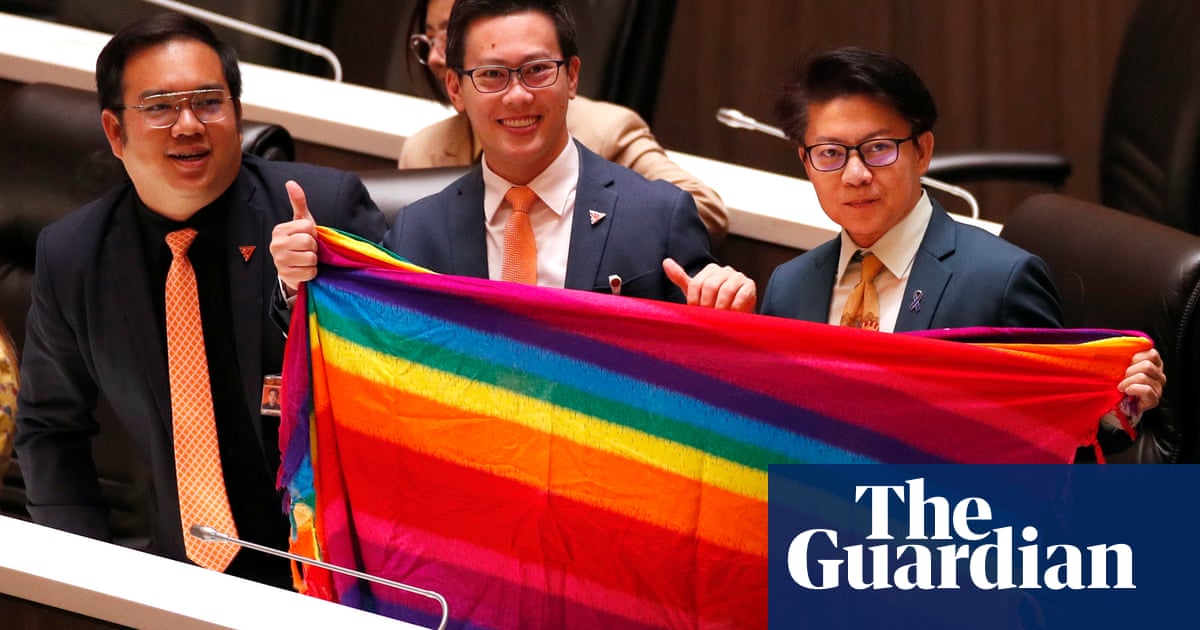
Thai lawmakers are set to vote on legalising same-sex marriage, putting the country on the brink of becoming the first southeast-Asian nation to recognise marriage equality.
The senate upper house is expected to approve the legislation on Tuesday, after which it will go to King Maha Vajiralongkorn for royal assent and come into force 120 days after publication in the official Royal Gazette.
If the bill passes, it will make Thailand the third territory in Asia after Taiwan and Nepal to legalise same-sex marriage.
The new legislation changes references to “men”, “women”, “husbands” and “wives” in marriage laws to gender-neutral terms. It also gives same-sex couples the same rights as heterosexual ones when it comes to adoption and inheritance.
Prime minister Srettha Thavisin, who has been vocal in his support for the LGBTQ+ community and the bill, will open his official residence to activists and supporters for celebrations after the vote.
Supporters will later hold a rally, featuring a drag show, in central Bangkok, where giant shopping malls have been flying the rainbow flag in a show of support since the start of pride month in June.
Activists say they hope the first weddings can be celebrated as early as October.
“I am confident that the bill will pass,” LGBTQ+ activist Siritata Ninlapruek told AFP.
“I believe that parliament members will realise the importance of equal rights and the family institution. This topic is too big to fail.”
Thailand has long enjoyed a reputation for tolerance of the LGBTQ+ community, and opinion polls in local media show overwhelming public support for equal marriage.
“I am so happy to see how far we have come,” said Chotika Hlengpeng, a participant in the Pride march that drew thousands of supporter to Bangkok early in June.
Tuesday’s vote is the culmination of years of campaigning and thwarted attempts to pass equal marriage laws.
While the move enjoys popular support, much of Buddhist-majority Thailand still retains traditional and conservative values. LGBTQ+ people, while highly visible, say they still face barriers and discrimination in everyday life.
Some activists have also criticised the new laws for failing to recognise transgender and non-binary people, who will still not be allowed to change their gender on official identity documents.












